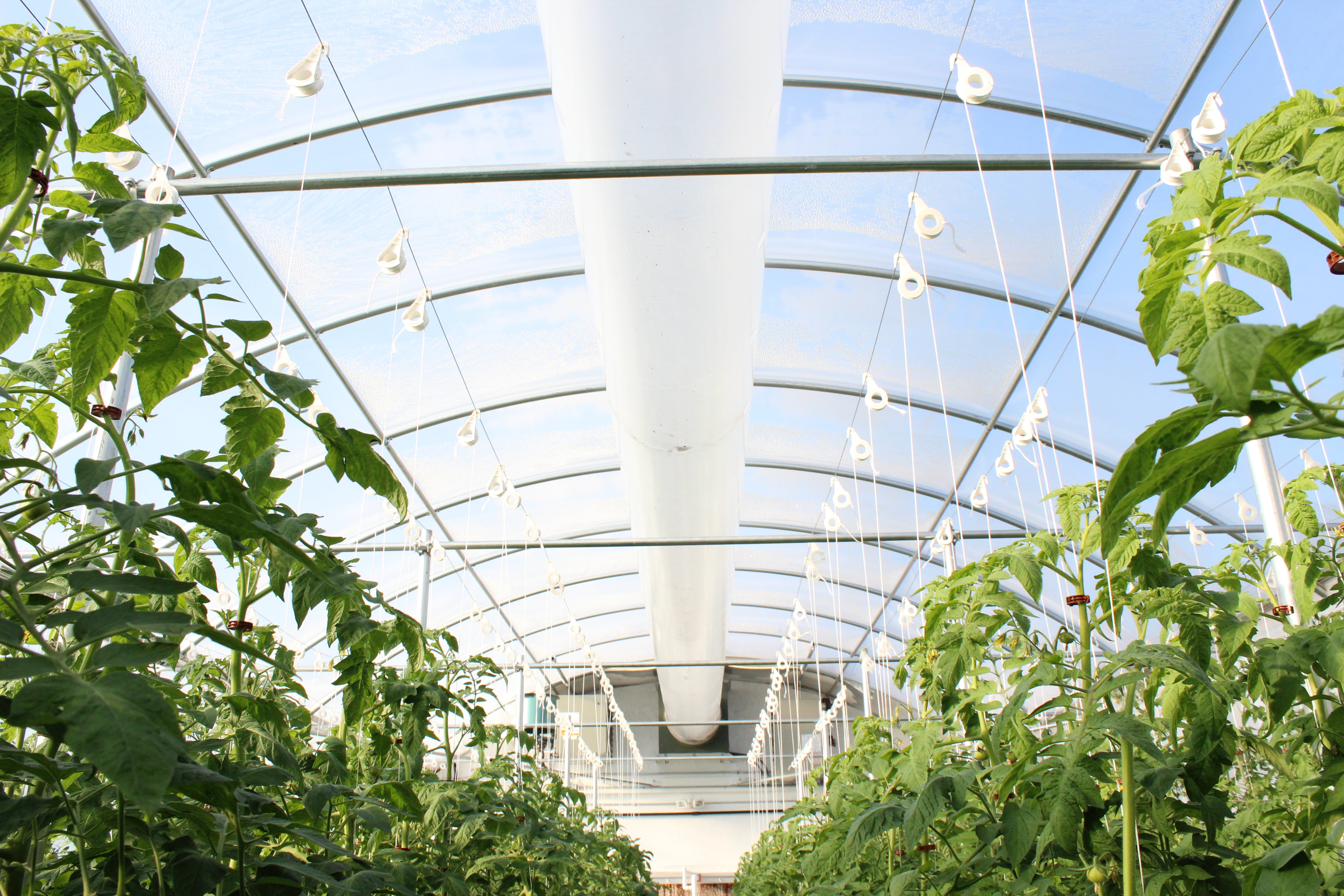Grower Spotlight: Just Farmin’

Superior Taste, Locally Made: CropKing Works Hand-in-Hand With Just Farmin’ to Grow Produce That Ohioans Prefer
When Steve Willis moved his produce farm from Liberty Township to St. Clair Township in southwest Ohio last year, one of his first calls was to CropKing to purchase two new controlled environment 30’ x 128’ greenhouses with NFT and Bato Bucket systems to grow its lettuce and cucumbers.
Willis’ farm–Just Farmin’–which he runs with his wife, Barbara, also grows tomatoes, snap peas, radishes, turnips, sweet potatoes, asparagus, garlic, and more for their 100-member community-supported agriculture (CSA) program, as well as 23 local restaurants (four of which are James Beard Award-nominated).
Moving to hydroponics was a “huge learning curve,” Willis says. So CropKing helped Just Farmin’ get through the transition, including providing guidance to integrate the hydroponic systems into the new structure.
Willis grew up in agriculture–he was once a hog farmer and holds a Bachelor’s Degree in Animal Science. However, his long-term career was in manufacturing.
“Coming out of manufacturing after 37 years, information and being able to contact somebody for support is huge,” Willis says. “Everybody at CropKing has been just awesome.”
“It would have never gotten done if it hadn’t been for those guys,” he adds. “It’s all about terminology, and understanding the terminology. They had to hold my hand so I could understand what was going on–via email, phone call, text message, they always got back to me within the day.”
One of the best parts about CropKing’s support, Willis says, is the ability to pare the information down so that a layperson can understand. “Not once has any of them tried to talk over my head, or over Barbara’s head,” he says.
Plus, the education is ongoing with the CropKing’s Grower’s School Workshops, where they also connect with the team. “Every time we’ve gone up to visit they’ve always had the time to spend with us,” Willis adds.
Willis says he also appreciates how CropKing tries its hardest to source its supplies locally–which is why he also regularly purchases fertilizer mix and hardware goods from the company.
CropKing’s Ongoing Technical Support
At Just Farmin’, Willis can be his “own worst enemy,” he jokes. “I’m always trying to make things better. Sometimes I step on my own tail,” but he says the team at CropKing is “very patient and understanding.”
In the spring, Willis had some issues with his mixing tanks and plants. Even though he’s 200 miles away from CropKing’s Lodi, Ohio headquarters, he was able to send pictures and data, and provide feedback. Three members of CropKing’s support team worked together to use deduction and fix the issue.
Willis is pleased to report the plants are now headed in the right direction.

Immediately Measurable Labor Savings
At Just Farmin’s previous farm location without the controlled environment greenhouses, they were using CropKing’s Bato Bucket and NFT systems manually, where the team was constantly monitoring the pH, water levels, and other metrics.
The CropKing controllers Willis uses at his new farm have “been a Godsend,” he says. Today, Willis says it takes himself, his wife, and their part-time labor 25 to 30 hours a week on average to complete the labor for both greenhouses.
Better-Tasting Greens and Cucumbers
Growing as naturally as possible is hugely important to the Willis’.
“The way we look at it is–as long as we’re not spraying hazardous chemicals on the cucumbers or the lettuces, we’re pretty good with it. Whether you bring your kids, grandkids–if you can’t pick something and eat it off the farm right there, then we don’t need to be growing it,” he says.
And while his community appreciates their efforts to grow as organically as possible, what they truly appreciate is the look and taste of Just Farmin’s produce.
“We did a lot of taste testing between ground-grown salanova lettuce and head lettuce–and the hydroponics. The customers, our CSA members, and our restaurants prefer the hydroponic lettuce. They said it had a better taste,” Willis says. “Cucumbers–no one can tell the damn difference between a field-grown cucumber and a hydroponic-grown cucumber.”
While he admits he has a few customers here and there that prefer ground-grown varieties–97% of Just Farmin’s customers “don’t bat an eye” when they learn that lettuce and cucumbers are grown in hydroponic systems.
What’s more, Willis says it’s been a lot of fun to experiment with new varieties.
For Growers Considering Making the Leap
For produce growers who are thinking about adding hydroponics to their operation, Willis says that CropKing’s “amazing technical and training support,” in addition to their high-quality and long-lasting products, is what makes the investment worth it.
Also, he advises to start small because learning to grow hydroponically is a journey, and not like flipping on a lightswitch over night. “Go to their Grower’s School–you’ll learn a lot,” he says. “You can watch YouTube all you want, but until you get your hands in the soil or in the water,” it’s not going to click, he adds.
Willis also says that growers can choose how involved they’d like to be with the construction and installment process. Customers can choose to have CropKing assemble their structures and systems, or they can walk through the steps for the “midnight mechanics,” like him.
“You start to understand the value of the packages they put together because they’ve done really good research,” he says. “The business model is very good.”
